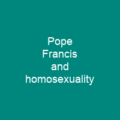Pope Francis: A Humble Leader in the Catholic Church
Imagine a leader who not only guides millions but also embodies humility, mercy, and a commitment to social justice. That’s Pope Francis, the head of the Catholic Church and sovereign of Vatican City State. Born Jorge Mario Bergoglio on December 17, 1936, in Buenos Aires, Argentina, he has left an indelible mark on the world through his actions and teachings.
Early Life and Formation
Bergoglio entered the Society of Jesus as a novice at age 17. His journey to priesthood began with studies in Santiago, Chile, followed by a licentiate in philosophy from the Colegio Máximo de San José. In 1969, he was ordained and became a professor of theology. This early formation laid the groundwork for his future leadership.
Archbishop of Buenos Aires
From 1998 to 2001, Bergoglio served as the archbishop of Buenos Aires. During this time, he was known as the ‘slum bishop’ for his work in the city’s shantytown slums. He doubled the number of priests working there and personally visited them, making a significant impact on their lives.
Transition to Pope
The transition from archbishop to pope came unexpectedly when Pope Benedict XVI resigned in 2013. Francis was elected with overwhelming support, becoming the first Jesuit pope, the first from the Americas, and the first from the Southern Hemisphere. His election marked a new era for the Catholic Church.
Key Initiatives and Teachings
As Pope, Francis has prioritized several key initiatives:
- Mercy and Accessibility: He emphasizes God’s mercy over strict adherence to rules. His ‘no frills’ style and frequent public appearances make him accessible to the faithful.
- Economic Justice: Francis criticizes unbridled capitalism and consumerism, advocating for a more just economic system that benefits all people.
- Environmental Stewardship: He has made environmental issues a central focus of his pontificate, calling for decisive action against climate change.
Reform Efforts
Francis has initiated several reforms within the Church. For instance, he abolished bonuses for Vatican employees and cardinals, instead donating the money to charity. He also created a more transparent financial system at the Institute for the Works of Religion.
Controversies and Accomplishments
While Francis has made significant strides, his pontificate is not without controversy:
- Women’s Roles in the Church: He allowed women to serve as acolytes and lectors but firmly rejected their ordination as priests. This stance has been both praised and criticized.
- Sexual Abuse Scandals: Francis has taken steps to address sexual abuse within the Church, including defrocking Theodore McCarrick and convening a summit on clergy sex abuse.
Global Outreach
Francis’s global outreach is evident in his efforts to improve relations with China, recognize Taiwan, and support persecuted peoples. He has also played a key role in diplomatic efforts during international conflicts, such as those involving Ukraine and Russia.
A Personal Touch
Beyond his official duties, Francis’s personal touch is notable:
- Health Challenges: Despite health issues like chronic lung damage and knee problems, he continues to lead with resilience. In 2025, he faced a serious bout of pneumonia but showed slight improvement.
- Public Image: His simple lifestyle and frequent use of landline telephones contrast sharply with the opulence often associated with papal life.
Conclusion: A Leader for Our Time
Pope Francis’s leadership is a testament to the power of humility, mercy, and social justice. As he continues his journey as pope, his influence on the Catholic Church and the world at large remains profound. Whether through his words or actions, Pope Francis embodies the values that guide millions of faithful around the globe.

You want to know more about Pope Francis?
This page is based on the article Pope Francis published in Wikipedia (retrieved on March 10, 2025) and was automatically summarized using artificial intelligence.







